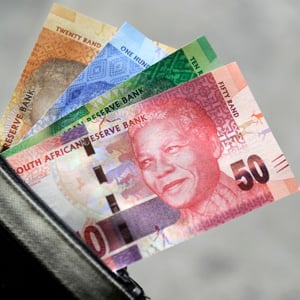
Johannesburg - If you find yourself overspending this festive season, don’t fret: you are not alone. Despite often being touted as the biggest savings nation in the world, even the Chinese are proving to be as in love with spending as the rest of us.
Mosidi Modise, an analyst at Allan Gray, went on a recent trip to China as part of the World Economic Forum’s Global Shapers – defined as a network of young people driving dialogue, action and change. While there, she discovered that the older generation were big savers, but the youth were quite the opposite.
“Although I had a limited sample and generally spoke to individuals who lived in a first-tier city in China, many of them commented about how the older generation was much better at saving than the younger Chinese millennials,” she says.
“China went through a prolonged period of scarcity during the Cultural Revolution. The revolution brought about massive uncertainty in the country from a political and economic perspective, and resulted in people needing to save whatever they could. Many of them lost everything, which is why the older generation remains frugal.
“However, the younger generation has grown up in a period where China has seen unprecedented growth since 1985,” says Modise.
“Much of the focus by policymakers over the past seven years has been on an inward-centred, consumption-led economy. To catalyse this, there has been a rise in mobile social and payment platforms such as WeChat and Alipay over the past three years.”
One could argue that China’s high savings rate was a function of the fact that its citizens did not have anything to spend their money on.
As that country opens up to the global economy, we find that the Chinese are just like everyone else – they love to spend, especially on aspirational brands. Modise says the big trend among the youth is to take photographs of their shopping and post them on social media.
This massive buying power leads to numbers that are impossible even to comprehend. China’s digital payment market is 50 times bigger than that of the US – and in 2016, consumers spent $5.5 trillion (R74 trillion) through payment platforms.
What the Chinese have done is make it very easy to spend, which removes them even further from the reality of their money.
As Modise notes: “Losing a wallet filled with cash and credit cards in China would be no problem, but losing your mobile phone is. It was astounding to observe people scanning Quick Response (QR) codes to pay for jianbing [traditional Chinese street food similar to crêpes] and tea from a street vendor in the morning ... I remember going into a corner shop to buy a fruit and maki roll after 9pm, and to my surprise, the teller did not have change for 100 yuan.
“About 98% of my purchases were paid with cash while I was in Shanghai as it was hard to find places where my Visa debit card worked.
“In the absence of a Chinese bank card linked to your WeChat Wallet or Alipay, you cannot pay using a more convenient method. That is the reality – China must be one of the few countries with the most advanced and sophisticated payment ecosystem at the moment.”
Modise’s experiences show that if you give us stuff to spend our money on – and make it easy to spend – we will spend. Given this fact, we need to put in safeguards to protect our pockets from ourselves.
Fact 1: If there is money in your account, you will spend it. So, your savings will be maxed out at the beginning of the month – before you spend.
Fact 2: If you have a credit line, you will use it. Avoid credit as much as possible. Never take out a store card in the first place. Refuse your bank’s offer of an overdraft facility. If you do have a credit card, either make it a low limit or lock it away.
Fact 3: We struggle with impulse control. When entering a shopping mall, a strange thing happens to our brain. It somehow switches off and we end up leaving with items we never intended buying. Switch your brain back on by making a pact that if you want to buy something that was not on your list, wait a day and then return to make the purchase.
Fact 4: Online shopping can be addictive. Carl Richards, author of The Behavior Gap, has created his own “cooling off” period for online shopping. He puts the item in the basket and then waits 72 hours. If he still wants it later, he orders it.
* SUBSCRIBE FOR FREE UPDATE: Get Fin24's top morning business news and opinions in your inbox.



 Publications
Publications
 Partners
Partners











